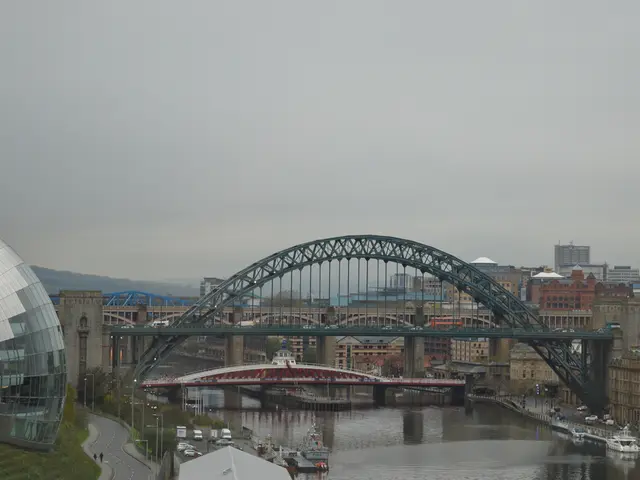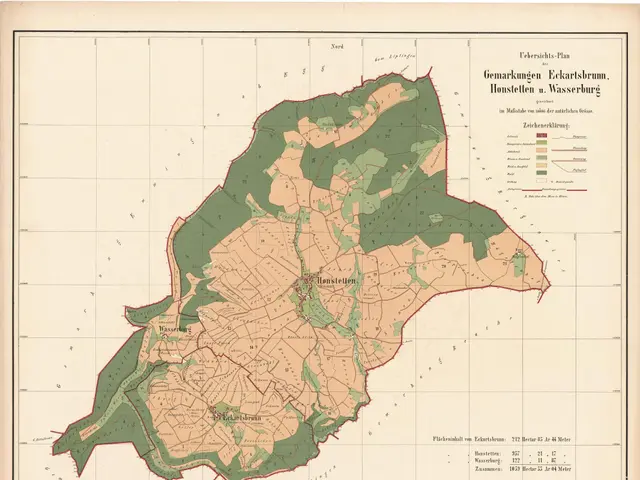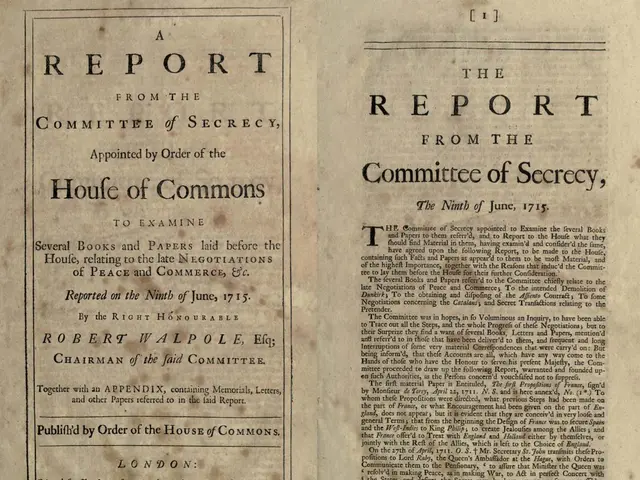Baden-Württemberg primarily relies on fossil fuels for its heating needs
Baden-Württemberg Aims to Transition Away from Gas Heating Towards Renewable Energy
Baden-Württemberg, one of Germany's most populous states, is making strides towards becoming climate-neutral by 2040. The state currently faces a challenge as more than one fifth of its greenhouse gas emissions are caused by building heating, with over 73% of residential buildings heated with fossil fuels as of 2022.
In an effort to reduce reliance on fossil fuels, the state has set new regulations for new buildings. Since the beginning of 2024, new buildings in new development areas must be heated with at least 65% renewable energies or waste heat. This requirement will expand to all new buildings outside of new development areas from 2026 or 2028, depending on the size of the municipality.
In the districts of Lörrach and Tübingen, 58 out of 176 and 52 out of 239 new buildings, respectively, were heated with gas. However, the share of gas heating systems in new residential buildings continues to decline. In 2024, over 1,000 new buildings were still equipped with gas heating systems, which is around 10% of all new residential buildings.
The transition to renewable energy sources is not limited to gas heating. In 2024, 75% of residential buildings in Baden-Württemberg were equipped with heat pumps, while 9% were heated with district heating. Hybrid heating systems, which can be supplemented with biogas or hydrogen, can still be installed.
Some districts, such as Baden-Baden, have a higher share of gas heating. In Baden-Baden, gas heating systems were installed in 13 out of 34 newly built houses, making it the district with the highest share of gas heating in Baden-Württemberg.
The impact of these new regulations will only be visible in the 2025 figures. The GEG (Gesetz zum Ausbau erneuerbarer Energien) is currently being revised by the federal government to further support the transition to renewable energy.
Fritz Mielert, an environmental protection officer, believes that the goal of climate neutrality by 2040 can be achieved, but requires cooperation from various parties. He advocates for fixed rules on when the sale of natural gas should no longer be permitted and a ban on operating fossil heating systems from 2040 onwards.
Specific data on the number of newly built residential buildings equipped with natural gas heating in your city or municipality for the year 2024 is not publicly available. However, due to new regulations effective from 2024, new heating installations must operate with at least 65% renewable energy, significantly restricting new gas heating installations especially in new development areas.
In some cities such as Mannheim, Ulm, and Heidelberg, district heating is predominantly used for heating in new buildings. Municipalities must implement the measures outlined in their heat plans to achieve climate neutrality.
As the state moves towards its climate neutrality goal, the role of renewable energy in building heating is set to increase significantly, with a gradual phase-out of oil and gas heating.
Read also:
- Trump administration faces lawsuit by Denmark's Ørsted over halted wind farm project
- Unchecked Management of HP Dams Leads to Environmental Disaster: RTI Reveals
- Rapid advancements in automotive policies worldwide fuel transition towards electric vehicles
- CDU Hamm: Aim, Chosen Candidate, and Local Election Agenda








